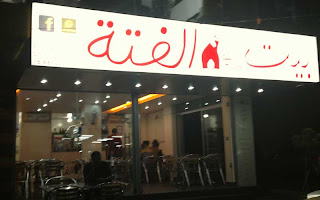It now seems inevitable that US ground troops will enter combat in Iraq and Syria. President Obama has asked for Congressional authorization for the limited use of ground troops in the war on ISIL. Congress is ready to approve the measure, with the only complaints from his opponents being that the President's request was too limited in scope and would not authorize enough troops.
Before our nation sends our sons and daughters to bleed and die in Iraq and Syria, we owe it to them to closely examine what our leaders are sending them to do. Jesus said that we should "count the cost" before making such important decisions. So let us examine the progress of this ongoing conflict involving ISIL (AKA ISIS, Islamic State), and what an expanded US role might look like. Before we send our sons and daughters to bleed and die, shouldn't we consider the cost?
First, we should ask, who is funding ISIL? The nasty truth is that our US allies among the Sunni nations are funding ISIL. In addition to black market oil sales in Turkey, ISIL is also funded by the sale of illegal antiquities through Turkish black markets. Before we send our sons and daughters to bleed and die, shouldn't our allies stop funding ISIL?
Second, we should ask, where will this war be fought? ISIL controls territory in Iraq and Syria. The US will begin the war by clearing ISIL out of Iraq. Then, when ISIL attacks continue across the border, we will have to invade Syria to stop them. But then there are also ISIL in Yemen, where forces have pledged loyalty to the Islamic State. ISIL is active now in Libya, where they are fighting the Egyptian government after beheading 21 Egyptian Christians. As Bahrain enters the war against ISIL, they face a Shia uprising at home because of extreme sectarianism. Before we send our sons and daughters to bleed and die, shouldn't we know where the war will be fought?
Third, for whom will we be fighting? When the US enters the war in Iraq, they will be fighting alongside the Shia government against the Sunni elements of ISIL. When the US invades Syria, we will be supporting Sunni rebel allies who are also fighting the Shia (Alawite) Syrian government. In a rare moment of candor, Vice President Joe Biden said what people close to the situation in Syria have known all along. There are no moderate Muslim allied armies to back. The myth that we can go in and help the "good guys" to win is a false one. There is no side in this fight worthy of our support. Before we send our sons and daughters to bleed and die, shouldn't there be something worth bleeding and dying for?
Fourth, who is training and equipping our enemies? We are. The US is training and equipping the very people that our soldiers will be fighting when they reach Syria and Iraq. We armed ISIL through weapons given to the Iraqi Army. Lots of weapons. Heavy Weapons. We armed ISIL through weapons given to militias. We continue to arm and train ISIL fighters by arming and training "moderates" who then defect to ISIL and use their US training and weapons for the cause of the Islamic State. Now the US will partner with Turkey, one of the greatest supporters of the Islamic State, to train "moderate" rebels. Thousands of rebels will get US training and equipment, which they will take back to Syria and use against our sons and daughters when they come to bleed and die.
When our troops go into Syria, they will sooner or later fight troops of the Assad regime, and we are also arming and equipping them as well. Before we send our sons and daughters to bleed and die, shouldn't we stop arming and training the people who will kill them?
When our troops go into Syria, they will sooner or later fight troops of the Assad regime, and we are also arming and equipping them as well. Before we send our sons and daughters to bleed and die, shouldn't we stop arming and training the people who will kill them?
Fifth, why is this our war? I do not want my son, nor any American, to bleed and die in a Sunni-Shia religious war. This is a religious war, the two sides are aligned against one another in Yemen, Bahrain, Iraq, Syria, and Lebanon -Sunni Muslim vs. Shia Muslim. What is the place of the US in such a religious regional war? What is our compelling national interest? Oil? Gas prices in the US are hovering around $2 per gallon at the time of this writing. Before we send our sons and daughters to bleed and die, shouldn't we have a good reason to send them to bleed and die?
Is it too late to stop this insanity? I pray not. If we don't send our children to die in a Muslim religious war, then what is the proper response? Let them fight their civil war; it is theirs to fight. Let the Sunni nations deal with the consequences of their support for radicalism. Let them consider the cost of blood. We can help -food, blankets, medicines, humanitarian aid -no radical faction will be attacking us with the bandages we supplied in five years, nor will they blow up our airplanes with bread a decade from now. There is a wise approach if we are brave enough to take it. Email the White House. Send them the link to this blog post. Before we send our sons and daughters to bleed and die, shouldn't we consider a better path?









